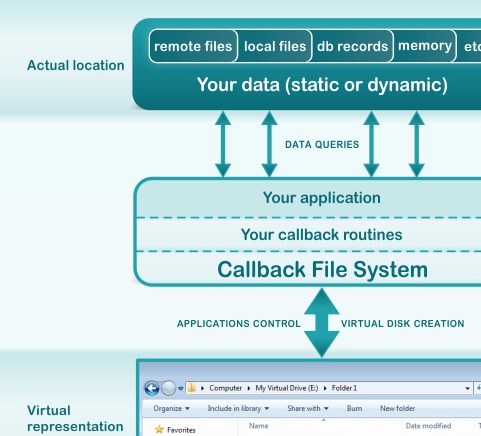Editor's review
With Callback File System you can create your own file system within your application and expose this file system to Windows as a virtual disk.
Features: Callback File System lets you create a virtual file system. What this does is hide the location and the format of the actual data storage from the system and the applications. The data may be spread across local disks or in application resources or memory or even somewhere in a remote location. Reading data and modifying the data is completely transparent to the user/ consumer of the data. Operating system or the application sees the virtual file system as a local disk.
This is implemented via a kernel mode driver and a user level API. User calls these API functions to implement the read/write and other functions. The driver calls your application to get the operations on this virtual file system done. Thus your application can expose generic data as a file system to third-party processes. This way remotely stored information is available for system wide access. This kind of virtual file system may be indispensable in scenarios where a document management system needs to hold the documents in a central vault, FTPDrive or WebDAV like remote drive applications or application that let you manage remotely stored data such as all your e-mails in Gmail like applications.
Callback File System is an SDK that makes it easy to implement virtual file systems. The kernel level driver and the user API are included. The driver creates a virtual disk with your files system and provides system-wide access to the disk. The API lets you manage the driver and the virtual disk from any Windows or .NET application.
With Callback File System you can run your file system code in user mode, letting the driver deal with complexities of the kernel mode.
Overall: A very useful system development kit for a vital functionality. It is easy to use.



User comments